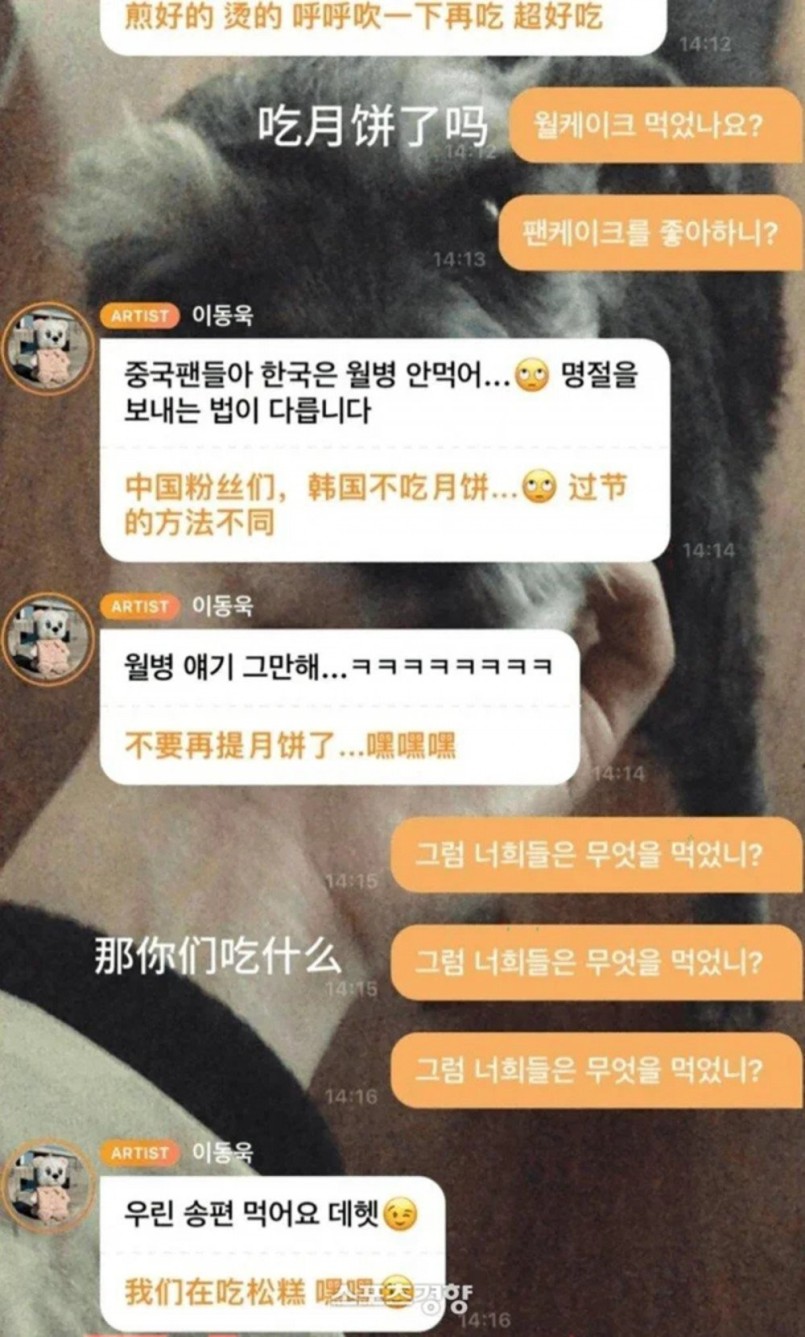Actor Lee Dong Wook has faced criticism from Chinese netizens following old remarks he made on Koreans not consuming mooncakes, which stirred up a heated discussion throughout social media.

Up to Aug. 20, the hashtag "Lee Dong Wook, Koreans Don't Eat Mooncakes" was trending on China's microblogging site Weibo.
Posts under the theme totaled more than 32,000, while views totaled over 98.12 million, reflecting the issue's fast spread.

The scandal dates back to Chuseok last year, when Lee answered fans on the messaging app Bubble.
When Chinese fans questioned if Koreans also consumed mooncakes during the festival, he answered, "Chinese fans, we don't eat mooncakes in Korea. We celebrate differently."
Lee then added, "Stop talking about mooncakes. We eat songpyeon (a traditional Korean rice cake)," a statement intended to point out cultural differences.
The remarks were subsequently translated into Chinese and widely spread, where they elicited fierce backlash.
Numerous Chinese netizens attacked the remark. One internet posting charged him with "disrespecting Chinese culture"
Another remark contended, "Koreans also eat mooncakes."
Others took it a step further, saying, "Korea might eventually try to claim mooncakes as their own traditional food."
Korean netizens, though, fought back against the heckling. One reply said, "He simply stated a fact, what's the problem?"
Another chimed in, "He just said Koreans don't eat mooncakes—because we don't."
The exchange has underscored long-standing tensions between the two nations regarding cultural heritage and identity.
While Lee's sentiments appear to have been spoken in an attempt to explain Korean tradition, the translating statements have created online uproar regarding ownership and pride.
Neither Lee nor his agency has officially responded to the matter. However Weibo discussions rage, the topic underscores the delicacy of cultural interactions between Korean celebrities and global fans.
Mooncake controversy rages, the incident mirrors more general issues for public figures in practicing cross-cultural communication in an entertainment-based globalized culture.












